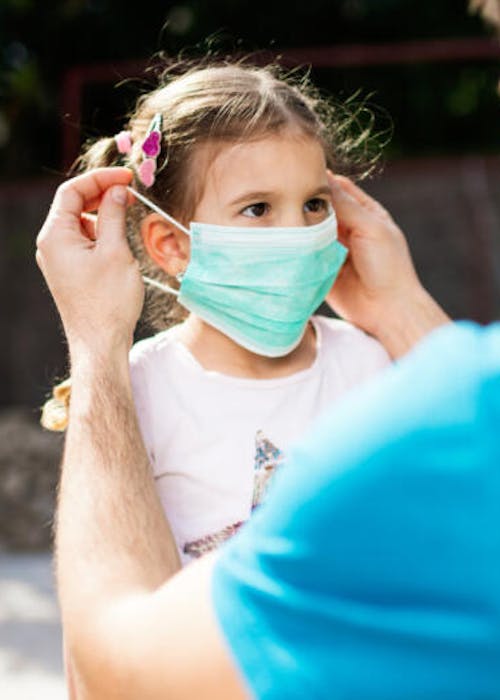

New Analysis Illustrates Need for Investments in Housing, Incomes, Child Care and Behavioral Health to Achieve an Equitable Recovery
Digital Briefs
November 22, 2021
By: Jack Mullan, Jennifer March
The Covid-19 pandemic has severely impacted the lives of children and families, as low-income households and communities of color have faced disproportionate rates of illness and death, loss of income, heightened housing insecurity, and more. These unprecedented challenges have not only exacerbated existing inequities but have drawn attention to long unaddressed needs and barriers to well-being rooted in structural racism and systemic discrimination, with particularly negative impact wrought on women of color and immigrant households.
CCC’s new analysis of the Household Pulse Survey — a snapshot survey introduced by the Census Bureau to monitor the impact of COVID-19 on households across the country — illustrates the ways in which New York’s families have experienced the deepest impact from the COVID-19 economic recession, and how recovery is failing to reach the most impacted households. New York’s government leaders must act with urgency to address the needs of children, families and communities hardest hit by the pandemic, not only to promote family and child well-being but to avoid repercussions that will be profound, long-lasting, and unacceptably costly in both human and socio-economic terms.
Among the key findings:
- In the NY Metro Area, nearly half of all households with children earning below $50,000 – households living in or near poverty – continue to report income losses in recent months.
- NY Metro Area households with children continue to report higher rates of material hardship and food insufficiency: in recent months, 37% report difficulty paying for their usual household expenses and 15% report that sometimes or often they do not have enough to eat.
- In NYS, renters with children are more likely to be behind on rent: in recent months around 30% report not being caught up on rent payments
- The costs of the pandemic are reinforcing racial inequities in food security in the NY Metro Area: compared to White households with children, Black and Hispanic families are three times more likely to report that sometimes or often they do not have enough to eat.
- In the NY Metro Area, 41% of women living with children remain out of work compared to 24% of men with children who remain out of work.
- Women living with children are 2.5 times more likely to cite child care as the primary reason for being out of work than men
- In the NY Metro Area, women report the highest rates of behavioral health concerns, particularly Hispanic women with children, among whom 42% are reporting symptoms of anxiety and depression.
Click here to download the complete analysis.
We are at a critical moment in New York – as incoming leaders at the city and state level must build on initial steps toward recovery and advance the essential building blocks that ensure that all New York’s children, families, and communities will thrive.
Considering the findings in this analysis, CCC is calling on City and State leaders to protect and expand supports that lift incomes, support parents and caretakers in returning to and sustaining work, and keep families housed, including:
- Prevent a surge on family homelessness when the eviction moratorium ends by investing in upstream preventive supports including community-based eviction prevention services, rate increasing the value of existing state rent subsidies, and enacting and funding a permanent statewide rent subsidy.
- Expand access to affordable and supportive housing options for families and enforcing the local mandate that 15% of city-funded affordable housing projects units be set aside for households experiencing homelessness.
- Leverage tax policy tools proven to reduce poverty including reforming the Empire State Child Credit to include children under four years of age as well as children left out of federal child tax credit reforms and reforming the city’s child tax credit to expand its reach.
- Take state and local action to expand eligibility for the State’s EITC to include young childless adults and deepen New York City’s Earned Income Tax Credit (EITC).
- Leverage city, state and federal funds to build a truly universal birth to five early care and education system that increases affordability and expands access to high quality infant toddler care, supports extended day and year-round PreK options and fairly compensate the workforce.
- Commit to invest in and expanding Universal Pre-K statewide until every four-year-old in the State has access to free, high-quality Pre-K.
- Address the severe shortage of behavioral health care for children and families, by investing in models of prevention that meet the needs of two generations — children and their caregivers — and funding a place-based continuum of clinical services in schools and communities.
- CCC stands ready to partner with New York’s elected leaders and policymakers to prioritize equity, justice, and well-being for our city’s children, families, and communities. In addition to informing budget, policy, and legislative action in New York City and State, we are ready to work alongside incoming leaders to ensure that decisions made in Washington DC result in the financial partnership required for bold progress locally.
For more information on CCC’s priorities for an equitable recovery for New York’s children and families at the state and city level, click to download:







